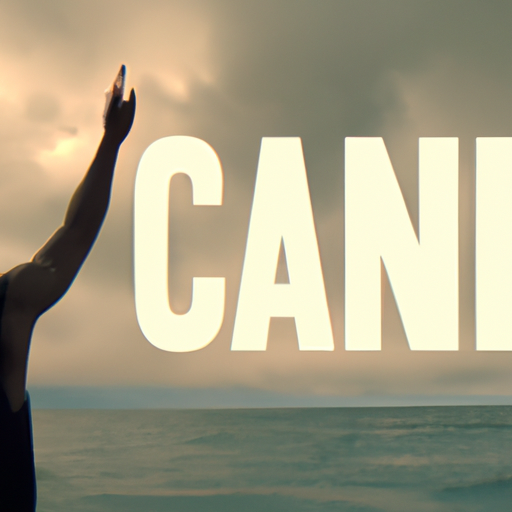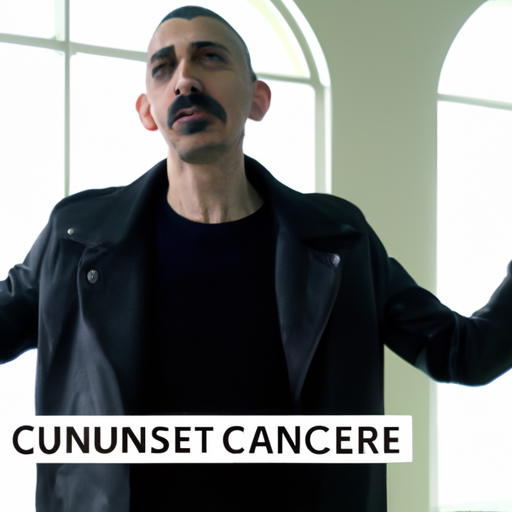Enes Kanter Freedom: “We have to cancel cancel culture”

The Impact of Cancel Culture on Freedom of Speech
Enes Kanter Freedom: “We have to cancel cancel culture”
In recent years, cancel culture has become a prominent topic of discussion, particularly in relation to freedom of speech. Cancel culture refers to the practice of publicly shaming or boycotting individuals or organizations for their perceived offensive or controversial actions or statements. While it is important to hold people accountable for their actions, cancel culture has raised concerns about its impact on freedom of speech and the potential for stifling open dialogue and diverse perspectives.
One of the most vocal critics of cancel culture is Enes Kanter, a professional basketball player known for his outspokenness on various social and political issues. Kanter believes that cancel culture has gone too far and is infringing upon individuals’ right to express their opinions freely. He argues that instead of silencing those with differing viewpoints, we should engage in constructive dialogue and promote understanding.
Kanter’s perspective is rooted in the belief that freedom of speech is a fundamental pillar of democracy. He argues that by canceling individuals for their opinions, we are essentially suppressing the diversity of thought that is essential for progress and societal development. Kanter asserts that cancel culture creates an environment of fear and self-censorship, where individuals are hesitant to express their true beliefs for fear of backlash or professional repercussions.
Moreover, Kanter highlights the potential dangers of cancel culture in perpetuating an echo chamber effect. When individuals are afraid to express dissenting opinions, it becomes increasingly difficult to challenge prevailing narratives or engage in meaningful debate. This can lead to a narrowing of perspectives and a lack of critical thinking, hindering our ability to address complex societal issues effectively.
While it is crucial to hold individuals accountable for their actions, Kanter argues that cancel culture often fails to provide an opportunity for growth and learning. Instead of immediately canceling someone, he suggests that we should encourage dialogue and education. By engaging in conversations and providing resources for individuals to understand the impact of their words or actions, we can foster a culture of empathy and growth.
Kanter’s stance on cancel culture aligns with the principles of free speech advocated by many democratic societies. Freedom of speech is not absolute, and it comes with responsibilities. However, the line between holding individuals accountable and stifling their ability to express themselves freely can be blurry. Kanter believes that cancel culture often crosses this line, leading to a chilling effect on open discourse.
Critics of Kanter’s viewpoint argue that cancel culture is necessary to combat hate speech and hold individuals accountable for their harmful actions. They argue that by canceling individuals, society is sending a clear message that certain behaviors or beliefs are unacceptable. However, Kanter counters this argument by emphasizing the importance of engaging with those we disagree with, rather than silencing them. He believes that through dialogue and education, we can challenge harmful beliefs and foster a more inclusive society.
In conclusion, cancel culture has become a contentious issue in recent years, particularly in relation to freedom of speech. Enes Kanter, a prominent basketball player, has been a vocal critic of cancel culture, arguing that it stifles open dialogue and diversity of thought. While it is important to hold individuals accountable for their actions, Kanter believes that cancel culture often goes too far, infringing upon individuals’ right to express their opinions freely. He advocates for engaging in constructive dialogue and education as a means to challenge harmful beliefs and foster a more inclusive society. Ultimately, the debate surrounding cancel culture and freedom of speech is complex, and striking a balance between accountability and open discourse remains a challenge for society.
Enes Kanter’s Fight Against Cancel Culture

Enes Kanter Freedom: “We have to cancel cancel culture”
In today’s society, cancel culture has become a prevalent and controversial topic. It refers to the practice of boycotting or ostracizing individuals or entities deemed to have engaged in offensive or objectionable behavior. While some argue that cancel culture is a necessary tool for holding people accountable, others, like Enes Kanter, believe that it has gone too far and is stifling free speech and expression.
Enes Kanter, a professional basketball player for the Boston Celtics, has been an outspoken critic of cancel culture. Born and raised in Turkey, Kanter has experienced firsthand the consequences of living in a country where freedom of speech is limited. He understands the importance of allowing individuals to express their opinions, even if they are unpopular or controversial.
Kanter believes that cancel culture is not only detrimental to free speech but also counterproductive in achieving its intended goals. Instead of fostering dialogue and understanding, it often leads to a culture of fear and self-censorship. People become afraid to voice their opinions, for fear of being “canceled” or facing severe backlash. This stifling of diverse perspectives ultimately hinders progress and prevents meaningful conversations from taking place.
Furthermore, Kanter argues that cancel culture fails to acknowledge the potential for growth and change in individuals. By immediately dismissing someone for their past mistakes or controversial statements, we deny them the opportunity to learn, evolve, and make amends. Kanter believes in the power of forgiveness and second chances, recognizing that people can change and should be given the opportunity to do so.
To combat cancel culture, Kanter advocates for open dialogue and education. He believes that instead of canceling individuals, we should engage in conversations that challenge their beliefs and provide them with the opportunity to learn and grow. By fostering an environment of understanding and empathy, we can create a society that encourages personal growth and intellectual development.
Kanter’s fight against cancel culture extends beyond his words. He actively uses his platform as a professional athlete to raise awareness about the dangers of cancel culture and the importance of free speech. Through social media, interviews, and public appearances, he encourages his followers to think critically and question the motives behind cancel culture.
However, Kanter’s stance has not come without its fair share of criticism. Some argue that cancel culture is necessary to hold individuals accountable for their actions, particularly in cases of racism, sexism, or other forms of discrimination. They believe that without consequences, individuals may continue to perpetuate harmful ideologies and behaviors.
While Kanter acknowledges the importance of accountability, he believes that cancel culture often goes beyond holding individuals responsible and instead becomes a form of public shaming. He argues that there are more effective ways to address problematic behavior, such as education, dialogue, and restorative justice.
In conclusion, Enes Kanter’s fight against cancel culture stems from his belief in the importance of free speech, personal growth, and forgiveness. He argues that cancel culture stifles dialogue, prevents personal growth, and denies individuals the opportunity to learn from their mistakes. By advocating for open dialogue and education, Kanter hopes to create a society that values diverse perspectives and fosters understanding. While his stance has faced criticism, Kanter remains steadfast in his belief that cancel culture is not the solution, but rather a hindrance to progress.
Exploring the Importance of Preserving Freedom of Expression
Enes Kanter Freedom: “We have to cancel cancel culture”
In today’s society, the concept of cancel culture has become increasingly prevalent. Cancel culture refers to the practice of boycotting or ostracizing individuals or entities that have said or done something deemed offensive or controversial. While it may seem like a way to hold people accountable for their actions, it is essential to explore the importance of preserving freedom of expression and the potential dangers of cancel culture.
Freedom of expression is a fundamental human right that allows individuals to express their thoughts, opinions, and beliefs without fear of censorship or punishment. It is a cornerstone of democracy and plays a crucial role in fostering open dialogue, promoting diversity of ideas, and challenging the status quo. However, cancel culture threatens this fundamental right by stifling dissenting voices and discouraging individuals from expressing their opinions freely.
One prominent advocate for preserving freedom of expression is Enes Kanter, a professional basketball player known for his outspokenness on various social and political issues. Kanter believes that cancel culture is detrimental to society as it suppresses differing viewpoints and discourages open discussions. He argues that instead of canceling individuals, we should engage in constructive dialogue to address and challenge problematic beliefs or actions.
Kanter’s perspective is rooted in the belief that cancel culture often fails to consider the complexity of human beings. People are not defined solely by their mistakes or controversial statements; they are multifaceted individuals capable of growth and change. By canceling someone, we deny them the opportunity to learn from their mistakes, apologize, and make amends. This approach perpetuates a culture of intolerance and does not allow for personal growth or societal progress.
Moreover, cancel culture can have severe consequences for individuals’ mental health and well-being. The fear of being canceled can lead to self-censorship, where individuals refrain from expressing their opinions out of fear of backlash or social isolation. This stifling of free expression can have a chilling effect on public discourse, limiting the diversity of ideas and hindering the pursuit of truth.
It is crucial to distinguish between holding individuals accountable for their actions and canceling them entirely. Holding someone accountable involves engaging in meaningful conversations, educating them about the impact of their words or actions, and encouraging them to reflect and grow. Canceling, on the other hand, shuts down any possibility of dialogue and perpetuates a culture of exclusion and intolerance.
Preserving freedom of expression does not mean condoning hate speech or harmful actions. It means creating an environment where individuals feel safe to express their opinions, even if they are unpopular or controversial. It means fostering a culture of empathy, understanding, and forgiveness, where individuals are given the opportunity to learn from their mistakes and contribute positively to society.
In conclusion, cancel culture poses a threat to freedom of expression and the open exchange of ideas. It stifles dissenting voices, discourages open dialogue, and perpetuates a culture of intolerance. Advocates like Enes Kanter argue that instead of canceling individuals, we should engage in constructive conversations that promote growth and understanding. Preserving freedom of expression is essential for a healthy democracy and a society that values diversity of thought. Let us cancel cancel culture and embrace a culture of empathy, forgiveness, and open dialogue.

